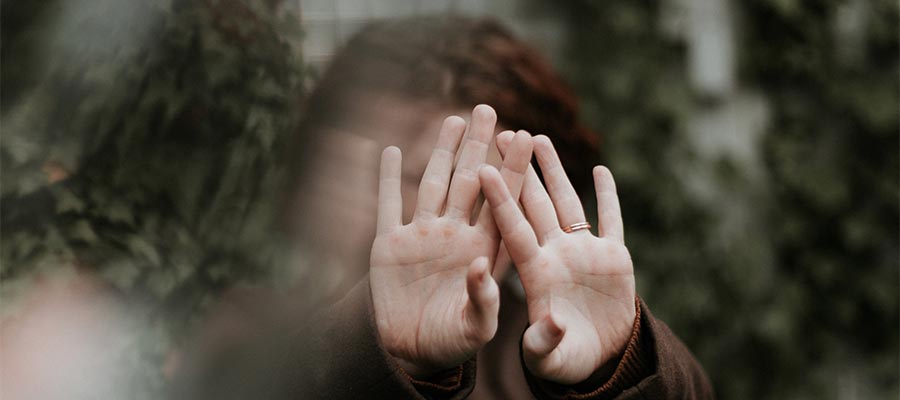Humans crave comfort, familiarity, and routine. It applies to our work and life.
For example, I take my routine to the next level. I start each morning the same way: I turn on my computer and open the apps I need – all in the same order. Maybe I’m a bit obsessed?
But this behavior goes further. It also applies to the way I build websites. There are certain styles and layouts that I’m comfortable with.
Don’t get me wrong – I do like some variation in how things look. But I also have a preferred way of working. Thus, I become unnerved when someone asks me to change.
There’s both a level of fear and frustration when leaving one’s comfort zone. But it can be a more rewarding experience than our brains will allow us to believe.
Let’s explore why projects outside of our sweet spot can cause such discomfort. Along the way, we’ll discuss some things we can do to meet these challenges with enthusiasm (or cautious optimism, at least).
Unlimited Downloads for Web Designers
Starting at just $16.50 per month, download 1,000s of HTML, Bootstrap, and Tailwind CSS, as well as WordPress themes and plugins with Envato Elements. You will also get unlimited access to millions of design assets, photos, video files, fonts, presets, addons, and much more.
Finding Your Design Happy Place
Success breeds complacency. That’s why, in the world of sports, it’s incredibly hard to win multiple championships in a row. Maintaining that same level of intensity is difficult.
In web design, successfully completing a project makes us feel great. But it can also result in becoming formulaic in how we do things.
Our process may evolve in some areas. But overall, we do what has led to positive outcomes in the past. It’s a natural reaction.
This approach is also great for efficiency. Especially when we have multiple projects to manage. Repeating these steps allows us to get more done in less time.
That is, until someone comes along and disrupts our happy little pattern.
Thanks for Ruining a Good Thing
Has a client ever asked you to create something that isn’t your style? It can throw you off your game.
I’ve been in this situation before. A client wants a unique layout for their site. Hearing this makes me feel a bit insecure. They were well within their right to ask. But I immediately felt like I was going to fail.
What was I so afraid of? They’re asking me to go beyond my comfort zone. Since I haven’t built this type of site before, how can I possibly succeed? Maybe this project will destroy my confidence. What if I disappoint my client?
This is an irrational way to approach the situation. I’ve been at this for long enough to where I should know better. But, like it or not, that’s usually my first reaction when life takes me to unexpected places. I don’t count it as one of my strengths.

Take a Deep Breath & Come To Reality
The biggest hurdle in these situations is taking the first step. Maybe it’s the fear of failure or the sense that you aren’t good enough. But it seems that the longer you avoid doing uncomfortable things, the worse you feel.
The solution is to get to work. Eliminate any distractions and spend some quiet time with your project. You may find that a decent idea can grow into something better. Pretty soon, you’ll be on your way to a successful outcome.
Problem-solving is a part of design that doesn’t always come naturally. When you’re handed the same problem over and over, you solve it the same way. But when handed a more unfamiliar riddle, you might be unsure of the answer. Uncertainty is uncomfortable, after all.
For me, the initial panic usually gives way to laughter. I wonder why I ever worried in the first place. Practicing patience and allowing myself room to experiment often leads to positive results.
With that in mind, here’s what I’m going to tell myself the next time I face a similar project. Maybe it will help you, too.
- You’re Not Being Punished – Being uncomfortable can be the worst feeling. It’s as if a curse has been put on me. I know that’s not the case (at least, I don’t think it is). But it’s important to remember that this is just another challenge in a life full of them. Others have been through far worse.
- You Might Fail Initially – Your first idea may not be the best one – but that’s OK. You have to start somewhere. Design is a process. And it’s particularly tough when you’re swimming in uncharted waters.
- You’ll Get It – Eventually – Working a different way often requires some trial and error. It also takes a bit more time. Patience and persistence are keys. If you keep working, you’ll end up with the right answer.
- The Experience Will Make You Better – Oftentimes, the best way to combat being uncomfortable with a project is to force yourself to do it. The reward is that you’ll feel more confident about having taken it on. You’ll also be able to lean on this experience when facing future challenges. That’s good because another one is always just around the corner.

It’s All Part of the Job
When you think about it, web design (and life) would be pretty boring if we did things the same way every time. Still, going outside your comfort zone is hard.
Your initial reaction may be to run as fast and far away as possible. But that leads to complacency and stagnation. Neither trait is good for your career.
It turns out that the key to dealing with these situations is to work through your fears and preconceived notions. Along the way, you’ll find that your design skills are much more flexible than you might have thought.
Top
Questions and Answers
- How can going beyond your comfort zone benefit you?
- What is the biggest hurdle in unfamiliar situations?
- Why is it important to take the first step?
- How can you improve your design skills in challenging projects?
- What is the key to success when facing uncomfortable projects?
Going beyond your comfort zone can lead to personal growth and development, increased creativity, and new opportunities.
The fear of failure or the sense of not being good enough is often the biggest hurdle in unfamiliar situations.
Taking the first step is crucial in overcoming discomfort as it can lead to progress, understanding, and positive outcomes.
Improving design skills in challenging projects can be achieved through patience, persistence, and a willingness to experiment and learn from mistakes.
The key to success in facing uncomfortable projects is to embrace the challenge, learn from the experience, and use it to build confidence and resilience for future endeavors.

